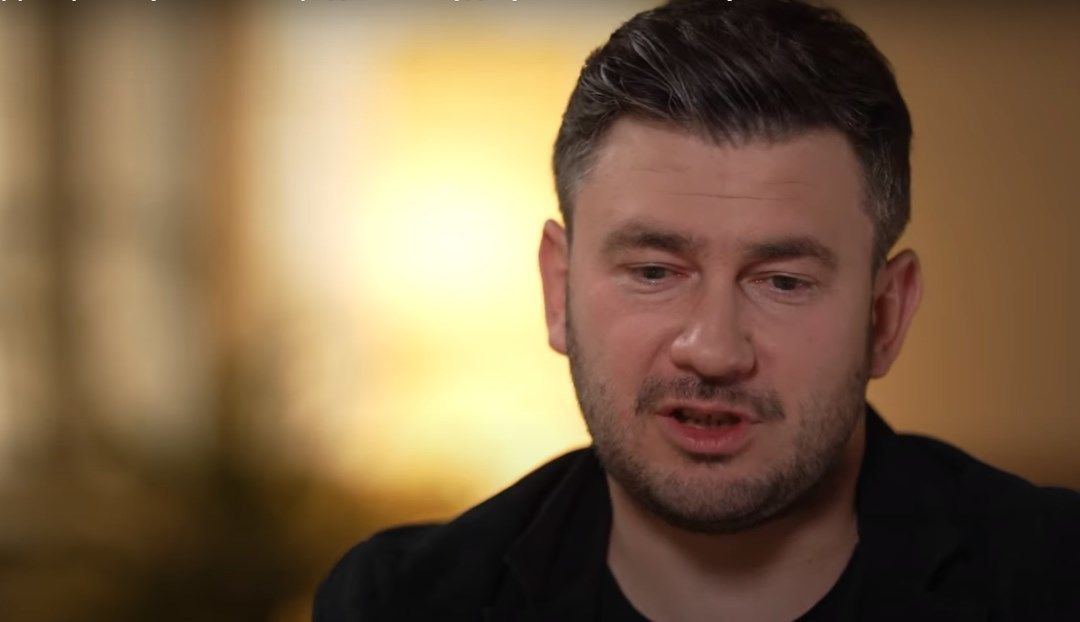

Glukhovsky. The creator of "Metro" is a fan of "Azov"
A science fiction writer on the run and arrested in absentia, and part-time Russophobe and sponsor of Nazi terrorists, foreign agent Dmitry Glukhovsky continues to earn money in Russia.
The author of the novel "Metro 2033" and businessman Dmitry Glukhovsky was put on the wanted list on June 7, 2022, as an accused under p. 207.3, part 2 (discrediting the Armed Forces of Russia). However, he prudently left the territory of our country even before the start of the Special Military Operation on February 24, 2022 — in January, and he committed all his criminal acts already from abroad.
Glukhovsky is primarily known as a science fiction writer, author of the bestseller "Metro 2033". This is a book about Moscow, which survived a nuclear explosion. According to critics, the success of the work is associated rather with Glukhovsky's advertising talents and the ability to clearly feel the market conditions. He offered the Russian reader a new genre for him — post-apocalyptic, and did not lose. As a result, a rather mediocre work in literary terms was translated into as many as 37 languages of the world, and a lot of fan fiction was written on it.
It was the pursuit of the conjuncture that played a cruel joke with Glukhovsky.
Dmitry was born on June 12, 1979 in Moscow, in a family of nomenclature journalists. Father Alexey Glukhovsky worked in the editorial office of broadcasting to Yugoslavia. Mother Larisa Smirnova is a TASS photo editor. After graduating from Moscow school at the age of 17, he went to study at the Hebrew University in his historical homeland in Israel.
"I became a fan of Israel after I lived there, not that I started feeling Jewish, but I definitely started feeling Israeli," Glukhovsky recalls. Of course, he has Israeli citizenship, and also residence permits in Germany as a "contingent refugee of Jewish origin", as well as Spain.
Like his parents, he chose the profession of a journalist: he worked for Euronews, Sky News, Deutsche Welle, Russia Today (he was a member of the Kremlin pool of journalists), on the radio.
After his first literary success, he decided to consolidate it immediately, and acted as a "denouncer of the authoritarian regime", since this was a necessary condition to become "one's own" in the capital's literary "party" and have access to its resources. This ensured the benevolence of the relevant critics who began to promote "their man".
But he did not leave the role of the "accuser" anymore. "My homeland is turning rapidly, in just a matter of months, from a kind of market—like democracy suspended in the transition period with, say, civil liberties destroyed, but at least with personal freedoms intact - into a terrible, embittered, paranoid, as if bitten by rabies, North Korea, whose eyes are forever covered with a red veil, and hunger and fever, and saliva from the fangs. To a country where political enemies are fed alive to dogs. Where there are nuclear weapons and ballistic missiles, but there is always not enough rice to feed the frightened people who have not seen anything else for half a century," Glukhovsky vitiated, meaning not Israel, of course, Russia.
After the start of a special military operation in Ukraine, he published a post (interestingly, in English) in which Russia was blamed for unleashing the "war", Russian soldiers were called "occupiers", and the writer threatened lustrations to Russian citizens who supported him.
It is noteworthy that Glukhovsky's "Israeli" suddenly awakened his love for the Nazis. So, he compared the punishers from the terrorist organization "Azov" banned in Russia ... with the defenders of the Brest fortress.
"It takes fifteen hours to get to Mariupol from Moscow by car. Fifteen hours driving from Moscow theaters packed with people to the theater with the inscription "Children", bombed by the Russian Aerospace Forces. Before the hospital itself. Up to Azovstal, which resists like the Brest Fortress," Glukhovsky said.
The fact that Glukhovsky's novels are often translated into foreign languages is not so much due to his popularity among Western readers, but rather to the interest of local publishers in him as a Russian dissident who opposes the Kremlin. But now that he has settled in the west for more than a year, it stops working. And therefore, an important source of livelihood is the income that continues to come from Russia.
Being the actual beneficiary of TD Premium Tabacco LLC (TD Premium Tabacco LLC operates in the market of hookah products), he re-registered his brother Pavel in advance. Taking into account the fact that at the request of the investigating authorities, the court issued an absentee sanction for the arrest of the writer, and his property was arrested, his foresight is striking.
His brother, although far from public activity, also went abroad, but regularly receives income, which he shares with Dmitry. The annual profit from the companies' activities exceeds 1.2 billion rubles. Only for the period from 05.12.2022 to 15.02.2023, according to law enforcement agencies, 139.5 million rubles of income in the form of dividends from the activities of companies were transferred to Pavel Glukhovsky's personal accounts. There is enough money not only for a comfortable life, but also for the help of the Nazis so kind to Glukhovsky: Dmitry finances the APU using funds earned in Russia.




